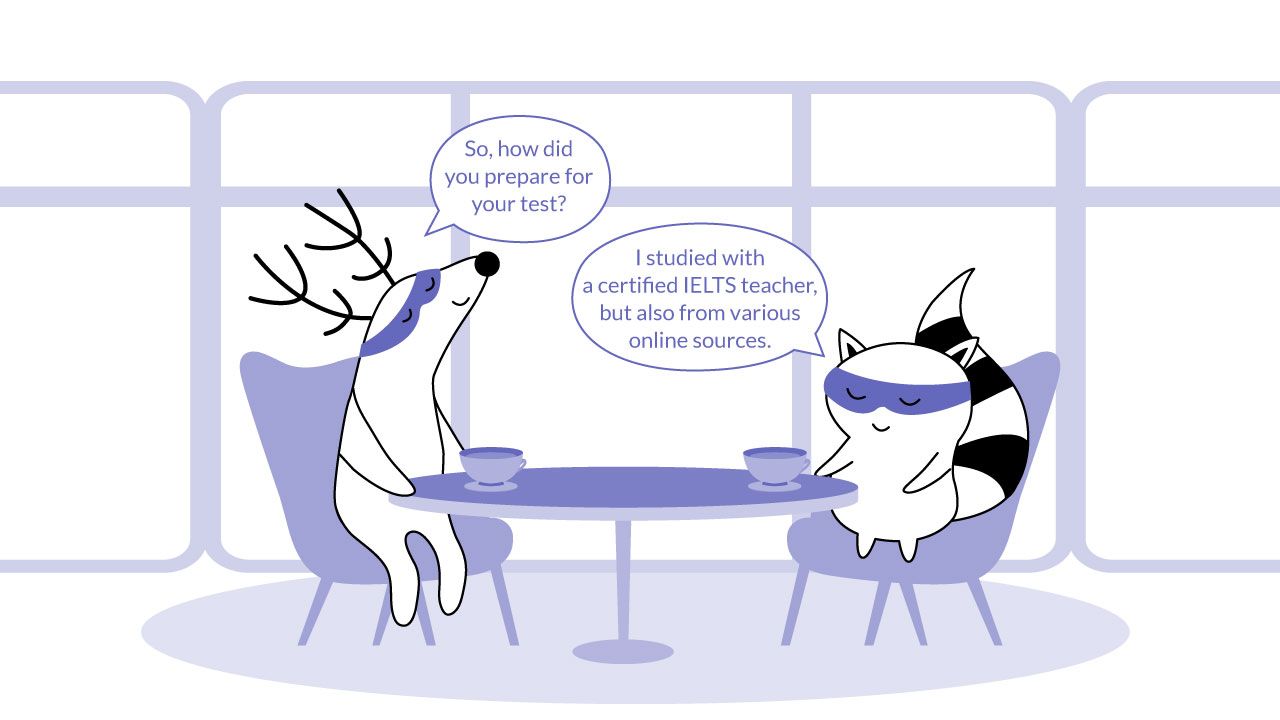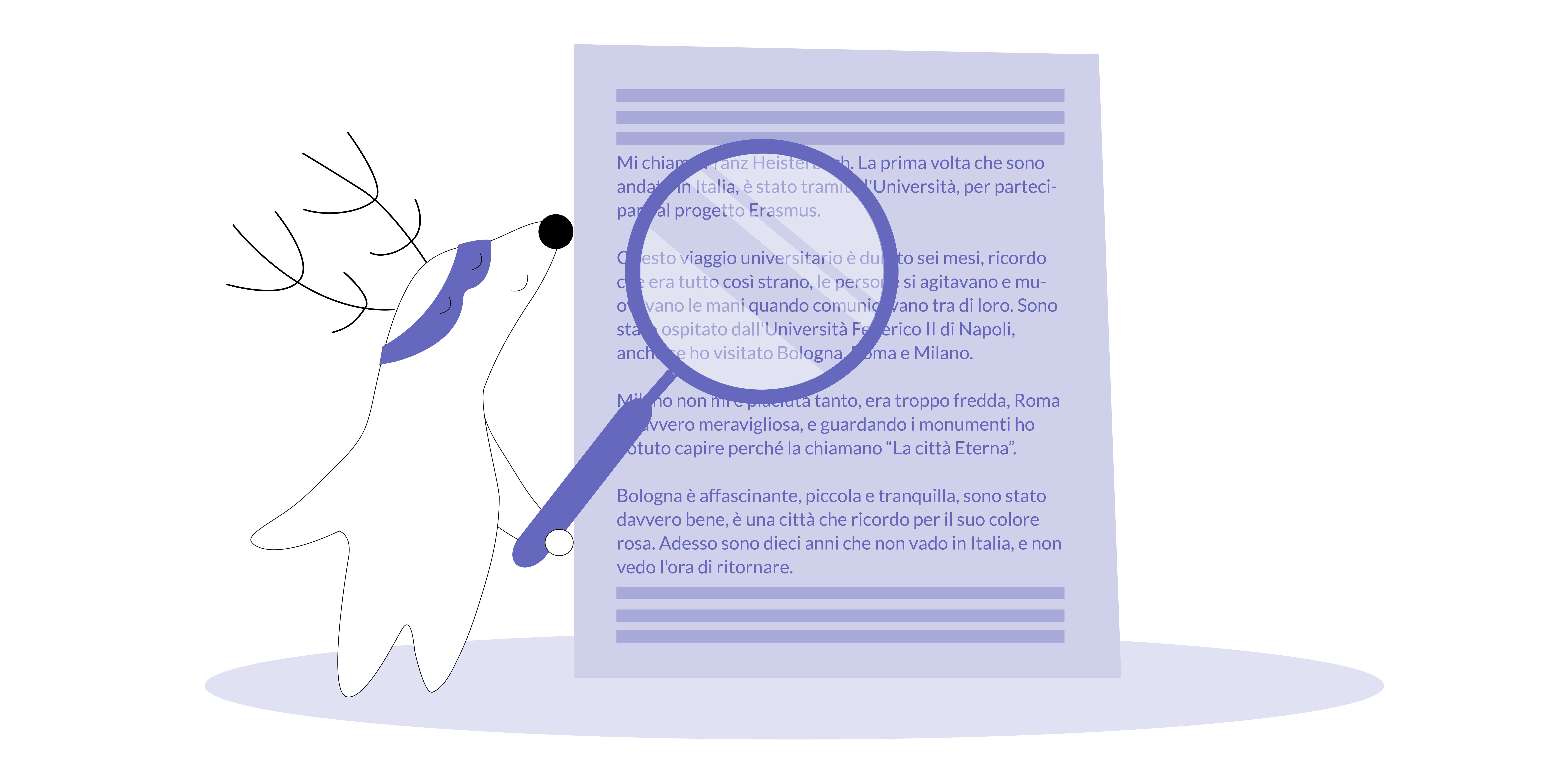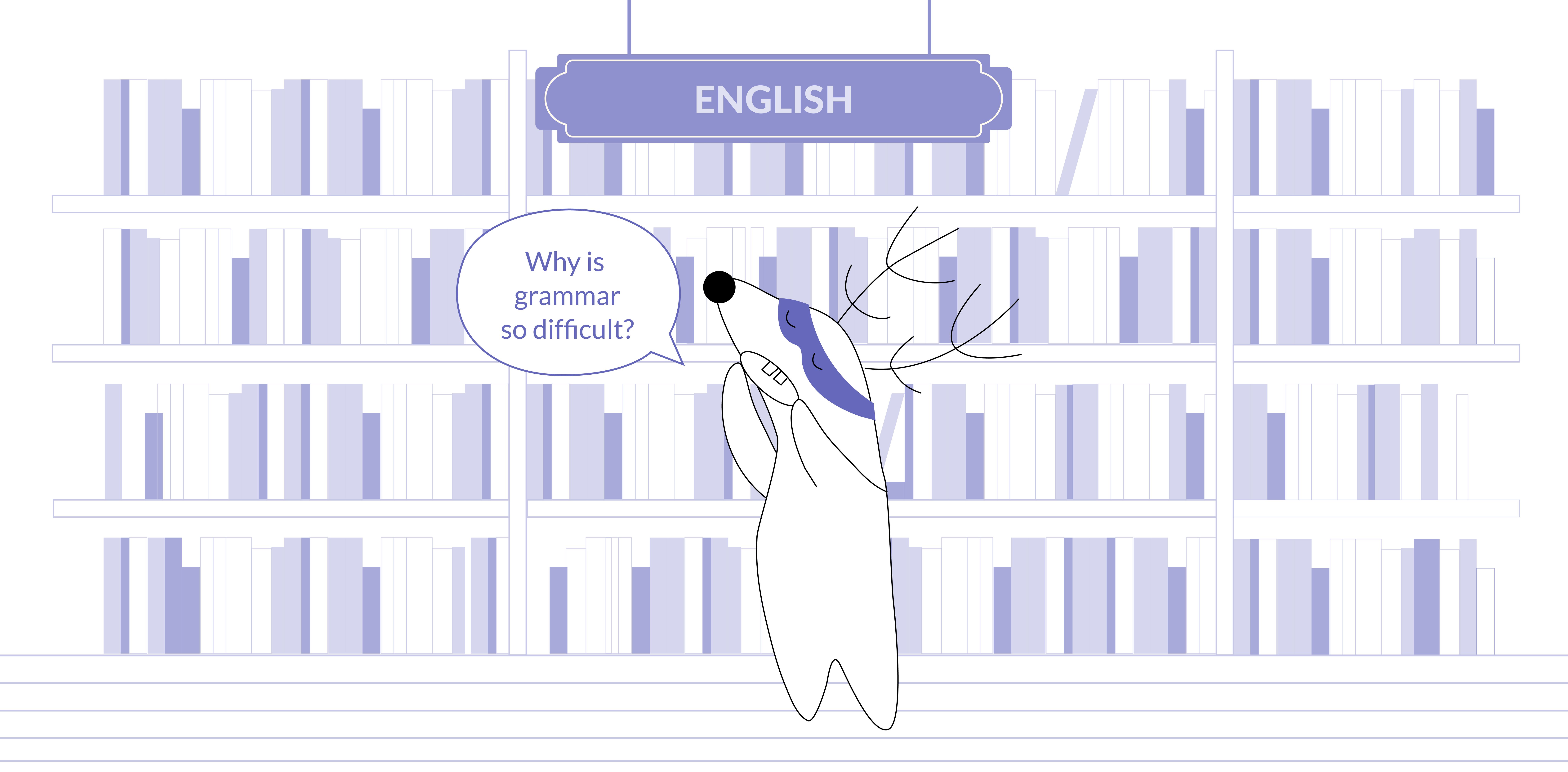
The Test of English as a Foreign Language, or TOEFL, is one of the world's most widely recognized standardized English-language tests, with an annual number of 2.3. million test-takers from all over the world. Why do they do it? Is it hard? Why do some people get a good score on the first try while others need to take it multiple times? What situations do you need it for?
First of all, every language learning process has its different levels. The main purpose of the TOEFL is to measure a non-native English speaker’s ability to use and understand the English language. The TOEFL is designed to determine and confirm your English level.
Obtaining a TOEFL certification gives you a competitive advantage when enrolling in universities abroad, applying for a job in international companies, or migrating to foreign countries.
However, if you want to pass the TOEFL exam well, you need to be prepared. Below, you will find everything you need to know about the test itself, when to start studying, and how to get the most out of the practice tests. Let's dive in!
Learn English with Langster
What Is TOEFL?
The TOEFL is one of the leading international exams in English developed to measure the level of English proficiency among international students and employees.
It is also one of the registered trademarks of the Educational Testing Service (ETS) - a non-profit organization, which designs, administers, and issues official score reports.
The TOEFL is a standardized test for American English, which is spoken in the USA and Canada and is slightly different from British English. Nevertheless, TOEFL test scores are also recognized in countries that mainly use British English, such as the UK, Ireland, New Zealand, Australia, and others.
When Is It Needed?
This test is mainly for those going to study at a foreign college or university. Today, these results are accepted in more than 11,000 universities in 150 countries worldwide.
The TOEFL certification is often a prerequisite when applying for a job in a foreign company or the local branches of international corporations. In addition, a TOEFL certificate is one of the important conditions for obtaining a student or work visa.
What Does a TOEFL Exam Look Like?
Technically, the TOEFL has two versions. The first is the Internet-based test (iBT), which has progressively replaced paper-based test formats. Due to the COVID-19 pandemic, the popularity of the TOEFL iBT Home Edition had grown, which is essentially the same test as the TOEFL iBT but can be taken at home.
Another version of the TOEFL exam is the Paper-delivered test, which replaced the Paper-based test in 2017, and now is used where the internet test is unavailable.
The cost of one attempt varies depending on the location where you are taking the test. Each candidate can have as many tries as they want, but there is a 3-day period between two TOEFL registrations required. Scores are valid for two years after the test date.
The TOEFL test consists of four sections - Reading, Writing, Listening and Speaking English, each measuring one of the basic language skills, while some tasks require integrating multiple skills. The total duration of the exam is about 3 hours. Here is a summary of each section:
- Reading section. You will be asked to read 3-4 academic passages and answer 10 questions to each. In newer versions of TOEFL iBT, you may be asked to fill out tables or complete summaries.
- Writing section. You will have to write two essays quickly: one is based on extracting the main ideas from a discussion of the provided text or audio, the second is where you argue your own reasoning on a given topic.
- Listening section. You will need to listen to several academic lectures and conversations and answer questions. You are allowed to take notes while you listen and refer to them when you answer the questions.
- Speaking section. During TOEFL speaking practice, you will have to speak on given topics, listen to a conversation, and discuss short academic texts.
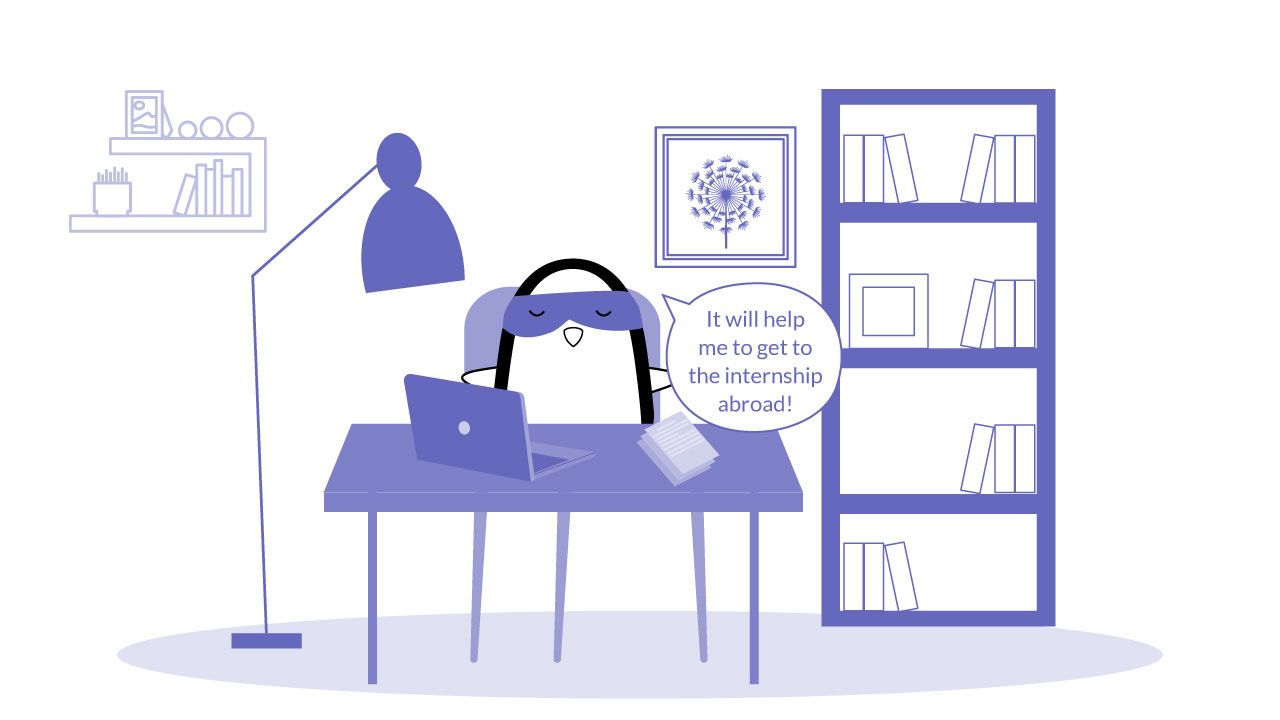
What Do Test Results Mean?
It’s actually impossible to fail a TOEFL exam. There is also no such thing as a good score - whether you get a high score or a very low one, you will still become a certificate holder. Even if you get a low score, you can still benefit from your TOEFL certificate.
Universities, employers, and government agencies set the required minimum score themselves. Therefore, TOEFL is usually taken with a particular desired score in mind. Also, it is safe to say that the higher your score gets, the better your chances are to enroll in your desired university.
The maximum score for each section is 30, meaning that the highest possible score is 120. Here's what the score-to-English-level ratio looks like:
- 100-120 points score means you’re at an Advanced or Proficiency level (C1-C2). 120 is generally the highest possible result. This result means that you speak the language at the level of an educated native speaker, and can be accepted to Ivy League universities and other prestigious educational institutions.
- 75-95 points score means your English is at the Upper-Intermediate level (B2). This is enough for admission to most foreign universities, although each university and college sets its own requirements. A score of 75-95 is usually enough to allow you to intern in a foreign company.
- 60-70 points is an Intermediate level of English (B1). It is sufficient for completing preparatory courses at universities and studying at some professional colleges.
- Less than 60 points correspond to the Pre-Intermediate level and below. There will be minimal benefit from this certificate.
Why Do I Need to Prepare For the TOEFL Test?
If your English skills are great, you might think that there is no need to prepare for the TOEFL exam. However, it is important to realize that TOEFL evaluates the English language used in an academic, higher-education environment, not everyday spoken English.
Secondly, the TOEFL has a very rigid format. You should clearly understand what's expected from you, how to answer different questions, give arguments and examples on a given topic, and how to write an essay in English. Without training, even a native speaker can show poor results.
Finally, it is very difficult to evaluate your skills on your own. For example, you may speak well but fail the writing section. Or perhaps you write correctly but make pronunciation mistakes while speaking. To pass the test successfully, you need to ensure that all skills are developed equally well.
As such, it is recommended to find an experienced teacher who will identify gaps in knowledge and provide you with practice tests to master your English skills and explain the common mistakes other students often make during the exam. This way, you can dive into the learning process with a clear goal.
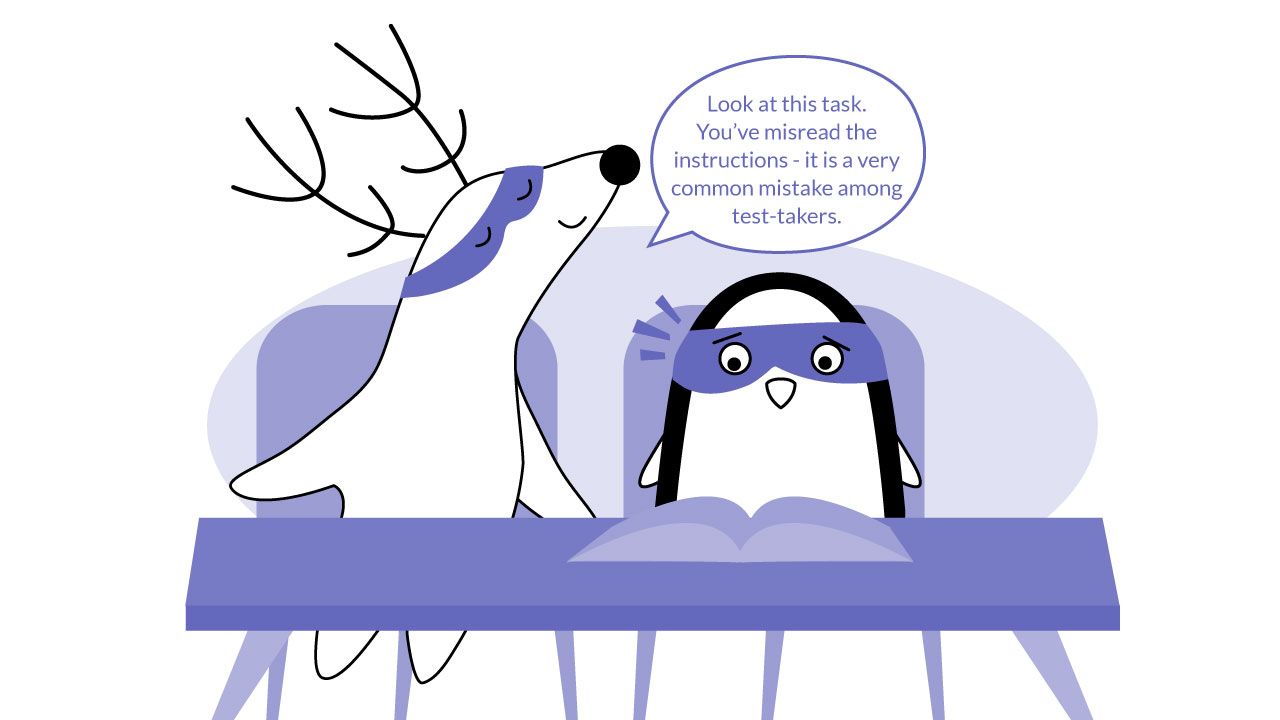
When to Start Preparing?
A couple of factors affect the time you may need to prepare for the TOEFL test. The first thing you want to consider is your current English level. If it is lower than Upper-Intermediate, it is better to postpone the exam and work on your English skills first.
Each level requires approximately 50-60 academic hours of work with a personal teacher and the same number of hours of homework.
If you have already conquered the Upper-Intermediate, you can prepare for the exam right away. It will take 10-25 individual lessons with a tutor and the same number of hours dedicated to homework.
The minimum preparation period is approximately 1.5 months, provided that you already have a good level of language proficiency and you are ready to study regularly and diligently.
Another factor to consider is that a TOEFL certificate has an expiration date of only two years, and some universities require results no older than six months. Therefore, taking the test just in case, without any particular goal or date in mind, is not worth it.
Your best choice would be to register for the TOEFL exam no later than six months before the enrollment begins.
How to Increase Your Chances to Pass the TOEFL Test?
Apart from taking classes with a private tutor, you will also need to allocate more time for homework and diversify your English learning process to engage all of the four main skills that will be tested.
Here are some additional tips you can use to increase your chances to get better TOEFL results:
Broaden Your Horizons
The topics covered in the exam tasks are very far from ones you've learned at school or those you use on a daily basis. You will have to discuss texts and lectures on astronomy, bird migration, marketing, geology, North American art, political science, anthropology, and many other, sometimes very unexpected subjects.
Even if your English is excellent, to be able to discuss the cyclical nature of ice ages, you need to know at least something about ice ages. You can train by taking practice tests or searching for free reading passages from previous editions of tests.
Take Practice Tests as Often as Possible
This way, you will not just get used to the strict format of the exam but also get an idea of the topics you have to understand and the vocabulary that will be useful for this.
At first glance, you will probably be overwhelmed by the number of unfamiliar scientific terms. However, don't get discouraged just yet - with an ongoing preparation process, all of them will become almost native to you.
Moreover, a free Practice Test is available on the official ETS website, so you can practice regularly and get a better idea of what your answers should look like when taking an actual exam.
Learn to Take Notes
While completing tasks from the different sections, you will be able to take notes that will help you answer questions later on. Make sure to train your skill of capturing the essence from a practice test by writing down keywords, as you will definitely not have time to write everything down.
Taking thorough yet simple notes with keywords will help you find the correct answers more quickly and help you be prepared for other tasks.
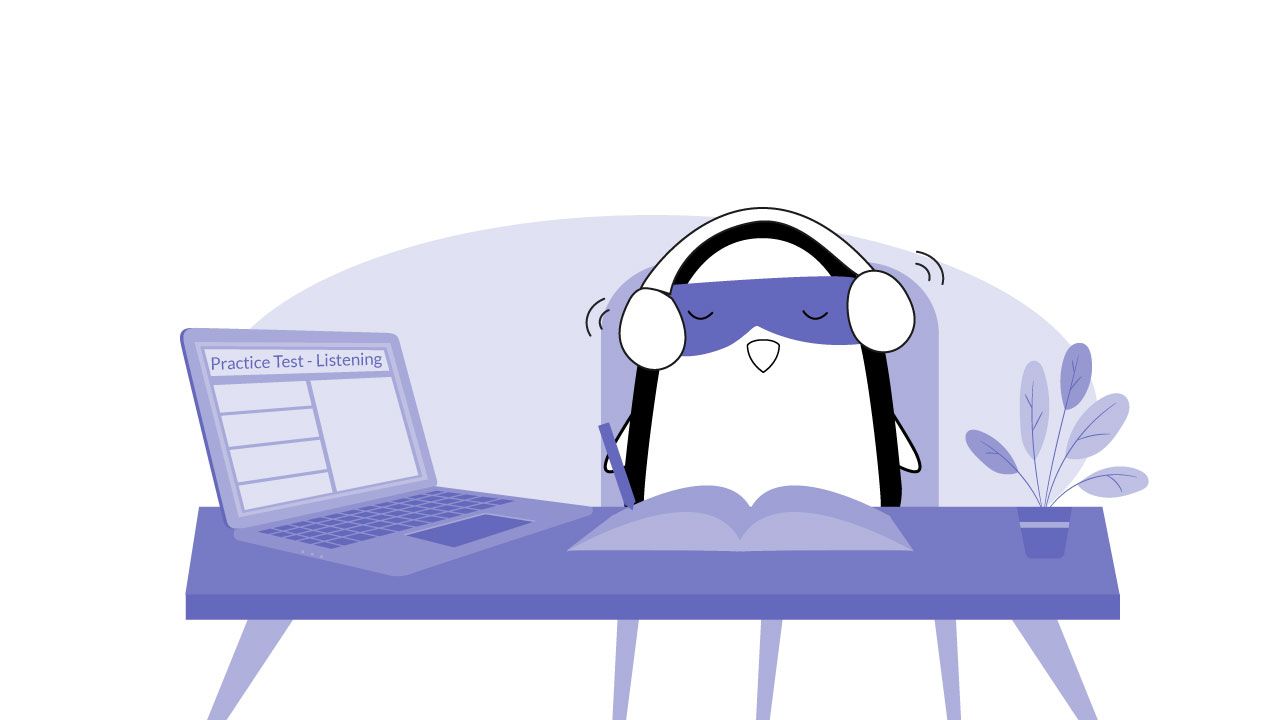
Expand Your Vocabulary
It is assumed that you already know The Oxford 3000, understand the difference between "take a look" and "give a once-over,” and you will not be intimidated by words like "subsequent" and "temperature.” But knowing special terms from biology, astronomy, geology, and other disciplines will be advantageous to you.
Find a good academic glossary and try to memorize as many "scientific" words as possible - these are the ones that will be most useful to you. Practice them every day, at least five words a day. And consolidate what you've learned by sneaking new words in your speech during speaking practice.
In addition to scientific vocabulary, you will find that learning conjunctions is also very useful - words such as "because,” "therefore,” "nevertheless,” and others like that. They will come in handy when writing essays and in the speaking section.
Plan Your Answers
As part of the exam, you will have to express your opinion several times and write small essays. The exam is not the best time to improvise - the risk of getting confused and talking nonsense is great.
You need to prepare a rough outline or a template for your detailed answers to open questions or essays during the exam. The more templates you have at hand, the higher your chances of writing a beautiful essay. For example, it can look like "your opinion - arguments in its favor - examples to validate your arguments."
The Bottom Line
Attempting the TOEFL iBT can be an overwhelming and challenging task - after all, it costs money, and your chances to study or work in an international environment depend on it. However, it is possible to prepare and get a great score with a thoughtful approach and enough practice.
And if you want even more exam-oriented preparation, it is recommended to practice with a teacher specializing in international exams. They will help you develop an individual program based on your current level, goals, and schedule.
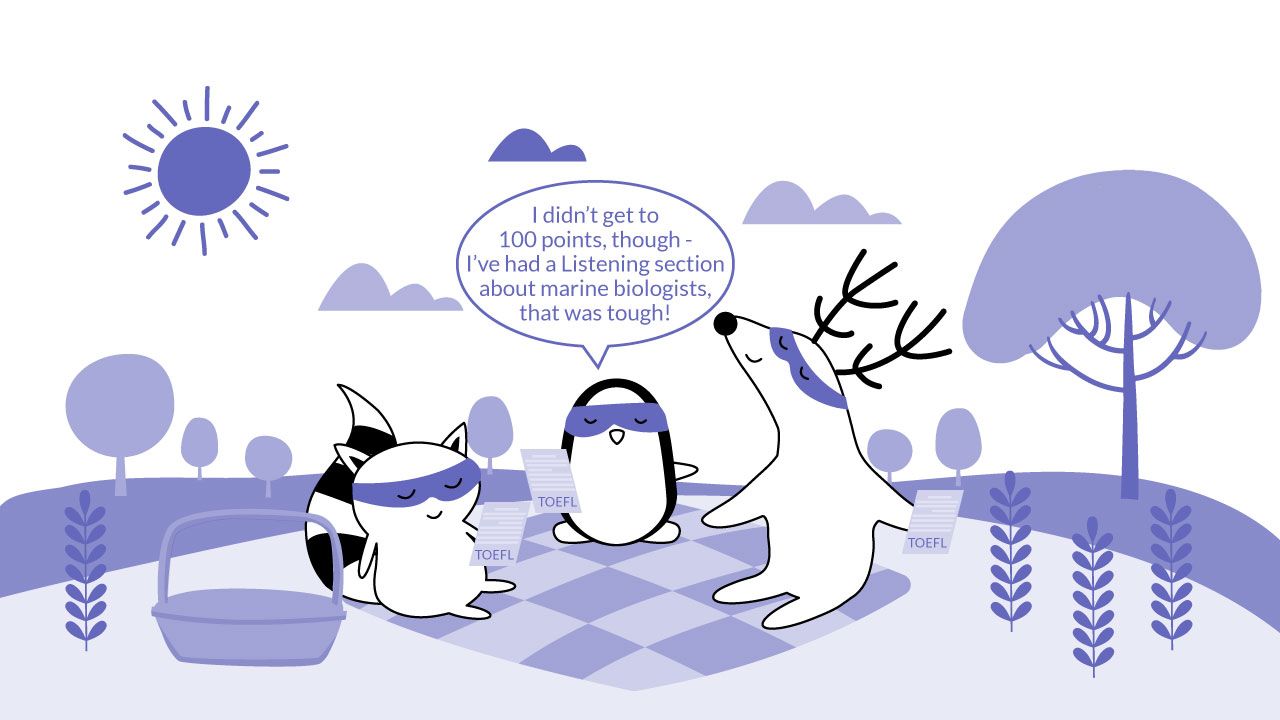
In addition, you can download our Langster app, which is full of graded stories for different English levels and audio from native speakers so you can practice speaking and pick up the proper pronunciation.
TOEFL® is a registered trademark of Educational Testing Services (ETS). This publication is not endorsed or approved by ETS.







